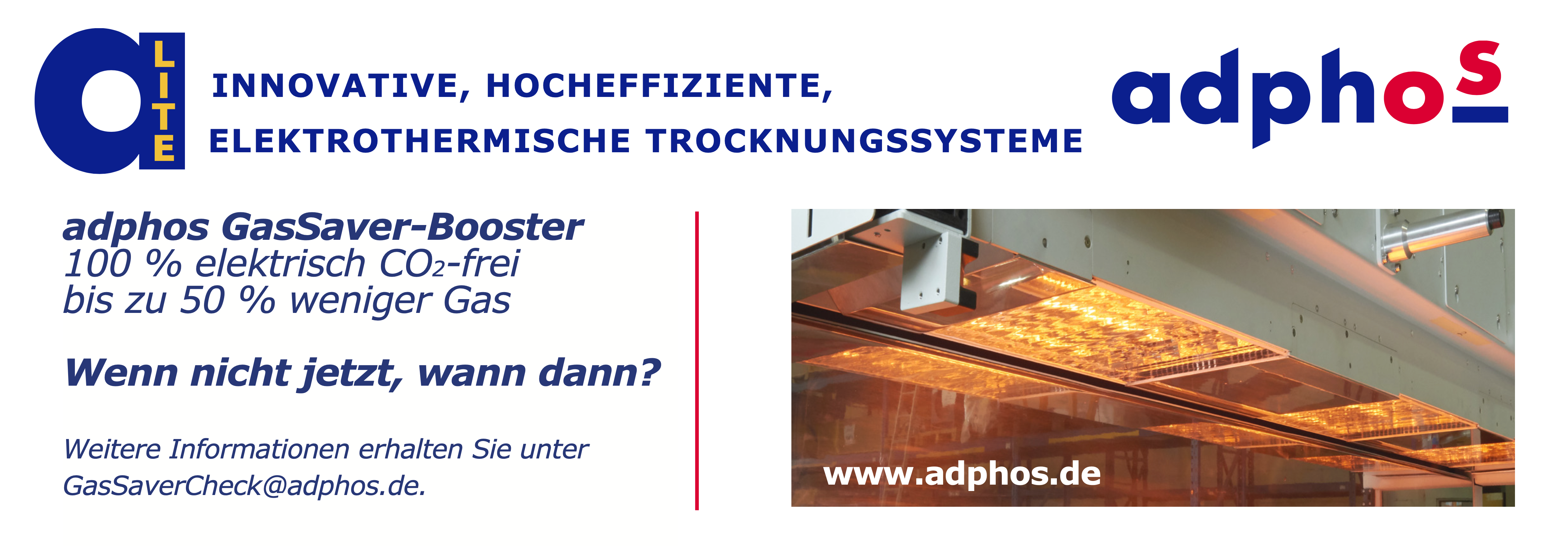Successful start-up of adphos BearLITE® for manufacturing of battery electrodes
In September, a BearLITE® (Battery electrode advanced rapid Light Initiated Thermal Emission)-based pilot production line for Li-battery electrodes has been started-up successfully at one of the leading Asian battery manufacturers.
The adphos proprietary BearLITE®-drying technology allows the processing and drying of wet electrode coatings in the blink of an eye (less than ten seconds) and is extremely energy efficient, the power consumption of standard convection dryers can be reduced by over 85 %!
The stand-alone solution installed at the customer has proven proper production


 …
…